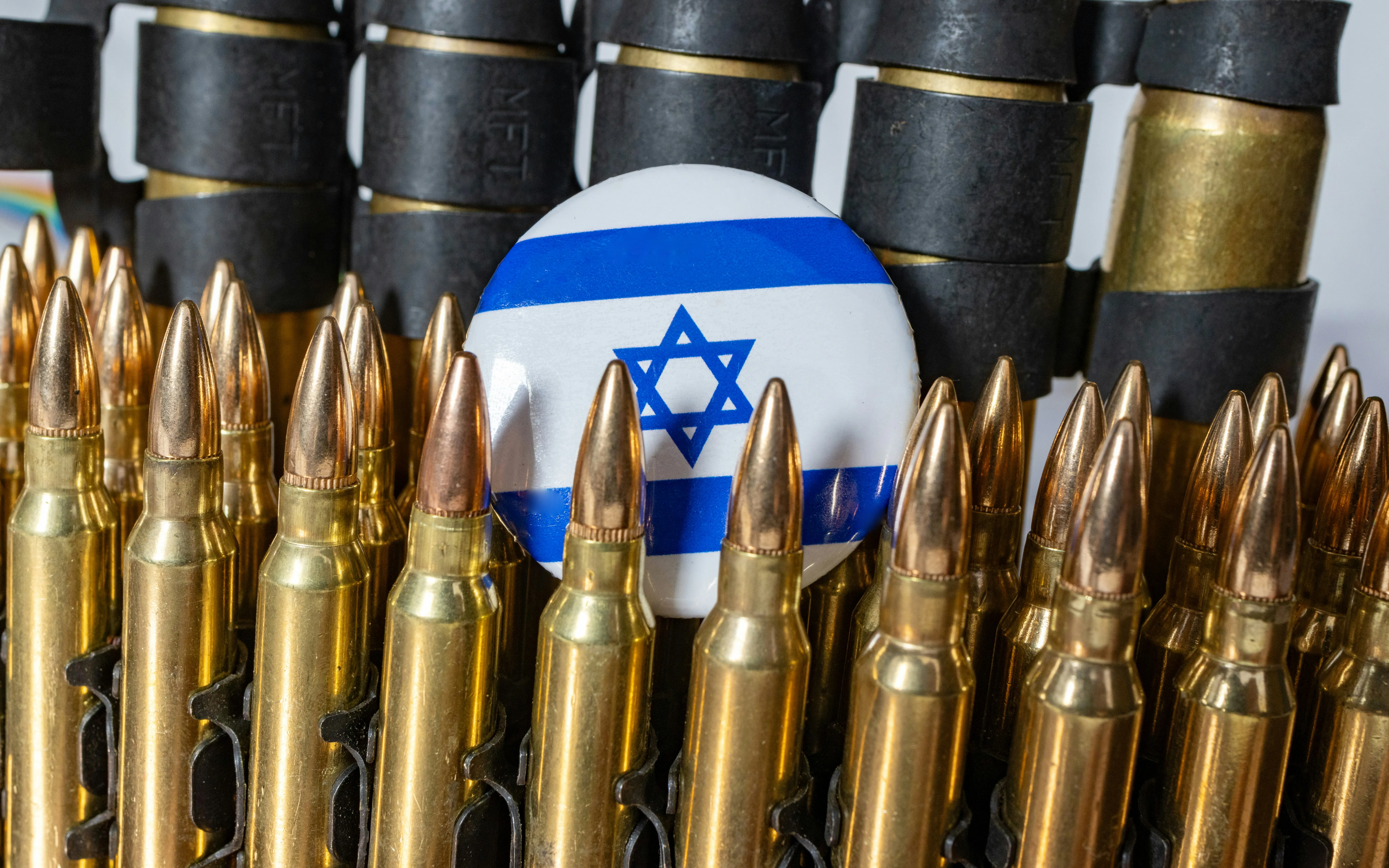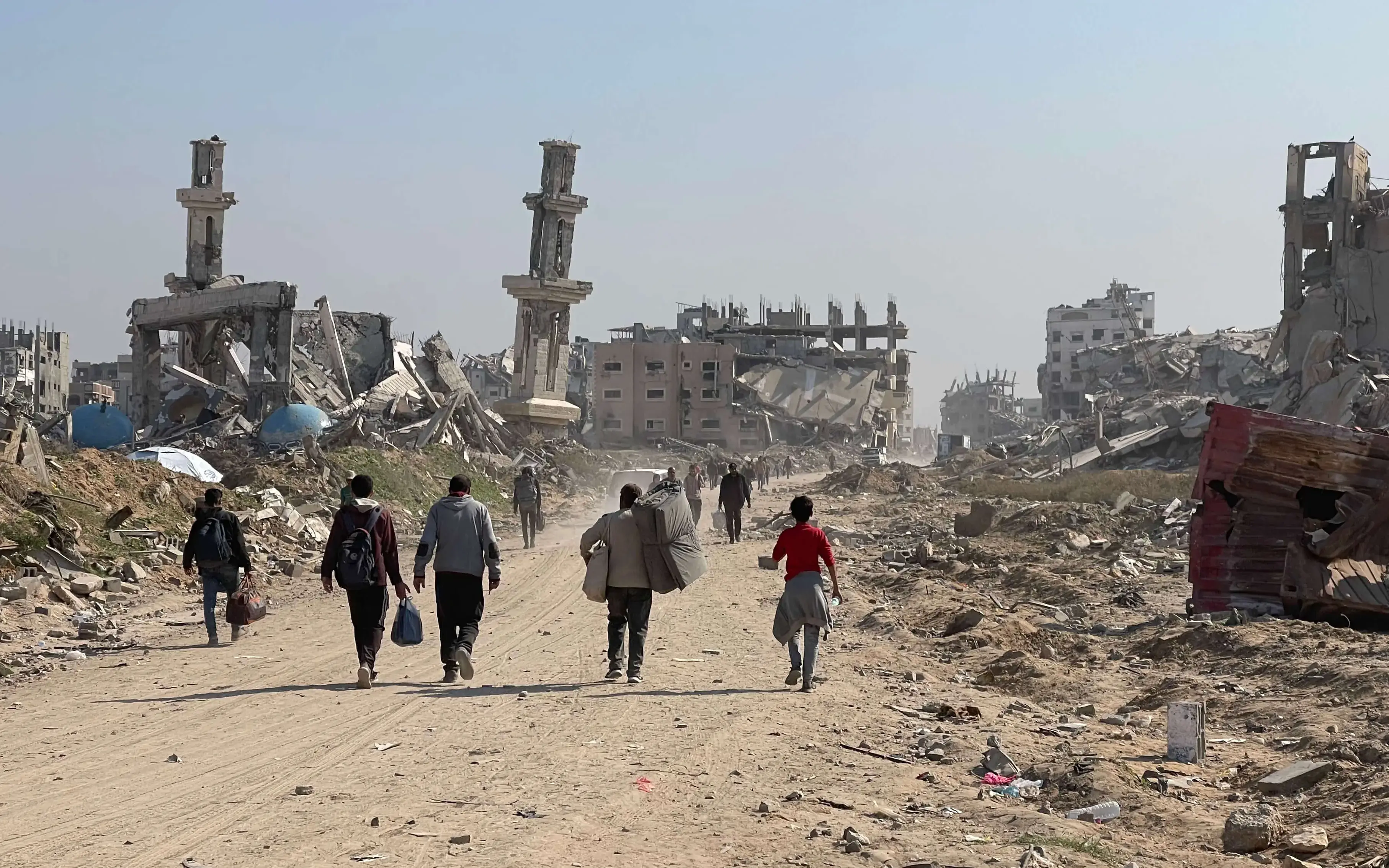A report from the Centre Delàs highlights that, since October 7, the Spanish government has approved the purchase of Israeli weaponry worth more than one billion euros.
Since October 7, 2023, the day Hamas launched a major attack on Israel, the response from the Hebrew State has been of a brutality difficult to describe. Nine months later, more than 38,000 people have been killed in Palestine, according to the Gaza Ministry of Health, a number that could be much higher, up to 186,000, according to estimates from the scientific journal ‘The Lancet’.
This indiscriminate offensive against the Palestinian people—including bombings of schools and hospitals—has shocked the world, but it has also highlighted the inaction of the international community in the face of the atrocities perpetrated by the government of Benjamin Netanyahu, which has so far acted with total impunity.
On the international stage, one of the most critical voices against Israel's actions has been that of the Spanish government. Publicly, President Pedro Sánchez has raised his voice to denounce Israel's actions in Palestine. “We reject the indiscriminate killing of Palestinians in Gaza and the West Bank,” or “we demand the immediate humanitarian ceasefire by Israel on Gaza and the strict compliance with international humanitarian law that today, clearly, is not being respected,” are some of the statements from the head of the executive, who has also pushed forward the recognition of the Palestinian State.
However, despite this seemingly strong stance, have relations between Spain and Israel significantly changed since October 7? At least in military matters, the answer is as unequivocally no as Sánchez's supposed criticism of Netanyahu's government’s actions.
This is highlighted in the latest report from the Centre Delàs, titled 'Business as usual', in which the organization analyzes Spanish arms trade during 2022 and the first half of 2023, focusing on commercial relations between Spain and Israel in terms of weaponry since the beginning of the Israeli offensive on Gaza.
In this context, one of the most striking revelations of the study quantifies Spanish spending on the purchase of weaponry from Israel at more than one billion euros—mostly on ammunition—since October 7. Thus, despite the Spanish Ministry of Foreign Affairs assuring that arms sales operations to Israel had been suspended since this date, the centre’s report states that exports and imports of military material to and from the Hebrew State have continued.
Spain, one of the world's leading arms exporters
The first point highlighted in the ‘Business as usual’ report, prepared by Tica Font, Eduardo Melero, and Alejandro Pozo, is the increase in Spanish arms exports in 2022 compared to the previous year. More specifically, they rose by 24%, the second-highest figure in the history of arms exports.
According to the report, this trend continued, and even strengthened, during the first half of 2023—the latest period for which the Spanish government has released defense export data—with export figures exceeding 1.75 billion euros, anticipating a record year.
In a global context where militarism and defense spending are on the rise, Spain ranks among the world's leading arms-exporting countries. In fact, the Stockholm International Peace Research Institute (SIPRI) places Spain in the eighth and ninth positions in the global arms exporters ranking for 2022 and 2023, respectively.
Most of the defense material sold are military aircraft, accounting for 75% of the total. Warships (7%), ammunition (4%), military land vehicles (4%), and bombs, missiles, and torpedoes (2%) follow. The study highlights the humanitarian severity of selling materials like ammunition, projectiles, and explosives.
Regarding the main destinations of this material in 2022, the report highlights that more than 62% went to European Union (EU) and NATO countries—worth over 2.5 billion euros—while 23% went to the Middle East and 10% to Asia, regions of high conflict and political tension. It is also notable that Spain exported 31.3 million euros in arms to Ukraine in 2022, and around 102 million in 2023.
Furthermore, the Centre Delàs points out the laxity that has often prevailed in Spain regarding arms export control. “The small number of denials can only be interpreted as a lack of political will to rigorously apply Law 53/2007 on the control of foreign trade in defense and dual-use material and the criteria established by the EU Common Position 2008/944/CFSP,” they note.
The arms trade with Israel continues despite the situation in Gaza
In Palestine, Israel is perpetrating genocide against the Palestinian people, which also constitutes war crimes and crimes against humanity. On one hand, the Spanish government has expressed its disapproval of Israel’s actions; but on the other hand, “military relations between Spain and Israel have essentially remained as they were before October 7,” the document states.
The most concerning data in this regard since the start of the genocide is that in November 2023, 987,000 euros in ammunition were exported from Spain to Israel. This operation was carried out by the company Nammo Palencia destined for Elbit Systems, one of the main suppliers to the Israeli army. In December 2023, arms and ammunition exports, including armored combat vehicles, were also documented, although in this case, the final destination was the Philippines.
As for imports between the two countries, they have not ceased; quite the contrary. The investigation estimates the value of contracts awarded to Israeli security and defense companies and their subsidiaries in Spain at 1.027 billion euros.
Therefore, the publication contradicts the statements of the Minister of Foreign Affairs and the Spanish president, who claimed that arms trade with Israel had been halted since October 7. “The Spanish government has thus prioritized the legal security of arms companies over the guarantee of human rights,” the report concludes, adding that “the only changes have been the temporary suspension of new export authorizations to Israel and the denial of transit in Spanish ports to a ship carrying weapons for that country.”
Beyond the import and export of defense material between Spain and Israel, the document highlights the continuity of relations in areas such as business collaboration between companies to access third markets, cooperation between universities, companies, and institutions in research and training projects, and bilateral collaboration between the two countries in intelligence and security.
Proposal for an arms embargo on Israel
These arms exports to Israel, the Centre Delàs emphasizes, “are contrary to the legislation on the matter,” citing Article 6.3 of the Arms Trade Treaty, according to which Spain should deny new authorizations and revoke, or at least suspend, export authorizations granted before October 7 that are still in force.
The report goes further and explores the possibilities of imposing an arms embargo on Israel. To make this viable and legal, given that the law does not provide for this possibility, it proposes creating “a law, including the decrees approved by the government.”
In this vein, possible amendments to Spanish regulations are proposed to improve legislation on the control of foreign trade in defense material, products, and dual-use technologies. For example, allowing arms embargoes on specific countries, improving control documents for destination authorities, establishing stricter regulation of defense material imports, and prohibiting the acquisition of weapons from countries involved in genocide or crimes against humanity.
In this regard, the organization reflects that “if in a situation like Gaza, the government does not apply the legislation to stop the arms trade with Israel, one has to wonder what it is for,” and concludes: “so far, only to legitimize the policy of promoting arms exports and to provide legal security to companies".








Add new comment